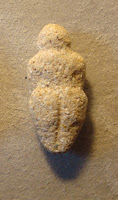A certain wench was born within fifteen miles of London, who within a year and a half after her birth did begin to eat earth, stones, brick and gravel. And so continued therein (having all her delight in eating of such baggage), also she did eat the woollen sleeves that were on her arms, besides that she did eat a glove. And on a time as her mother did feed her with milk, there chanced to fall a great piece of soot out of the chimney into the said milk, which soot the said child did take out of the dish with her fingers, and did eat it most greedily. She abhorred then bread and butter, and other such natural food. Whereby she was marvellously consumed with a flux, and yet she liveth, having nothing in her but skin and bone. I saw her in June 1577. She was born in Charsay, within two or three miles of Staines, at which time she was full three years of age.
This is from ‘A Thousand Notable Things’ compiled by Thomas
Lupton, and published in 1579, and again in 1601. His grammar and/or punctuation seem to have
gone a little awry, since he implies that she was full three years of age at
the time of her birth, which alone would have made this a notable thing. I assume Charsay to be Chertsey.
Thomas Lupton was a protestant polemicist, who proposed to
Queen Elizabeth the notably intelligent idea of a scheme of national insurance,
including taxing the wealthy to support the sick and poor, and a national fund
to repair bridges and coastal defences. His most well-known text, ‘A Thousand
Notable Things of Sundry Sorts’, which remained in print into the nineteenth century, is a collection of folk recipes, observations,
and odd ‘facts’ drawn from several medieval encyclopedias.






